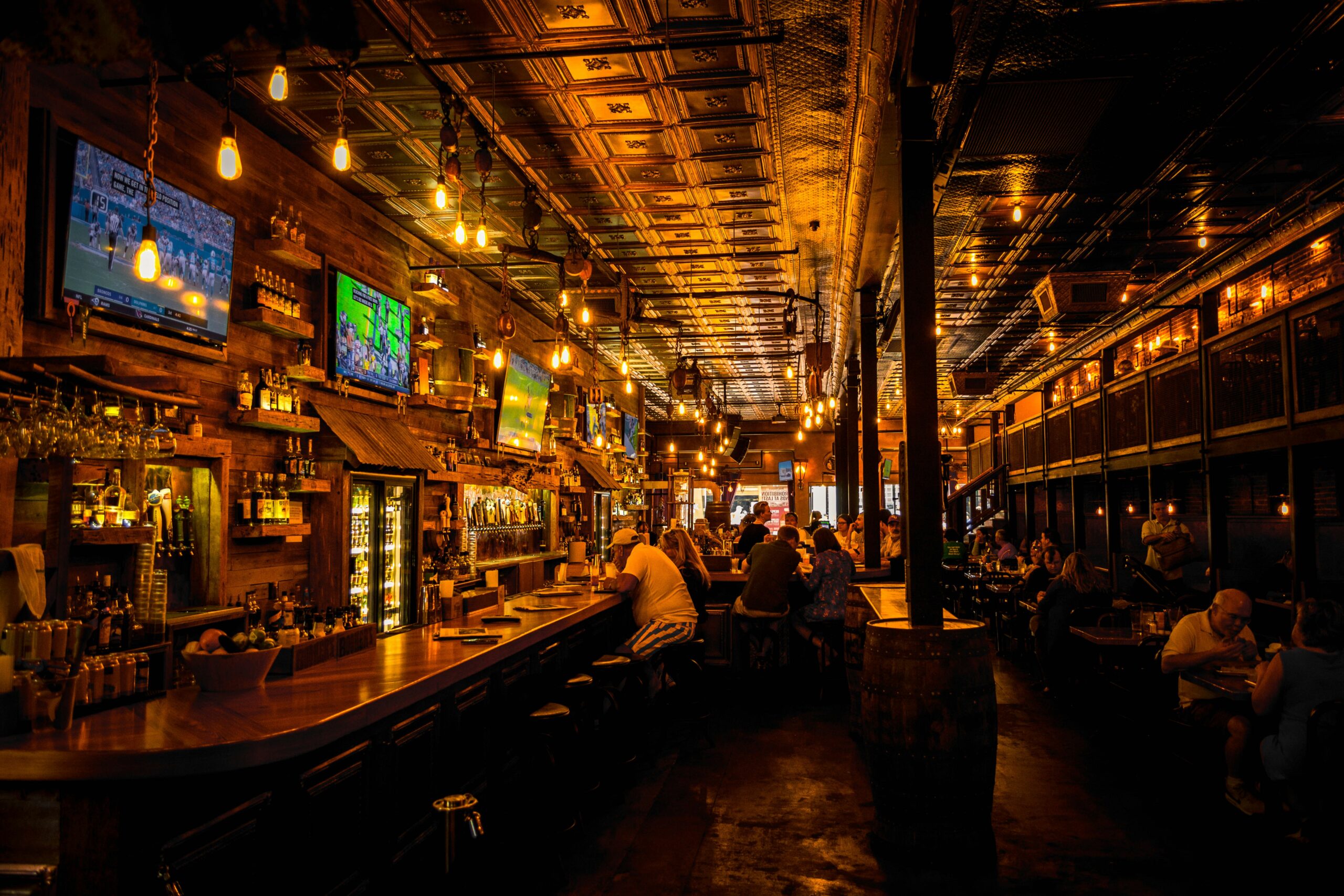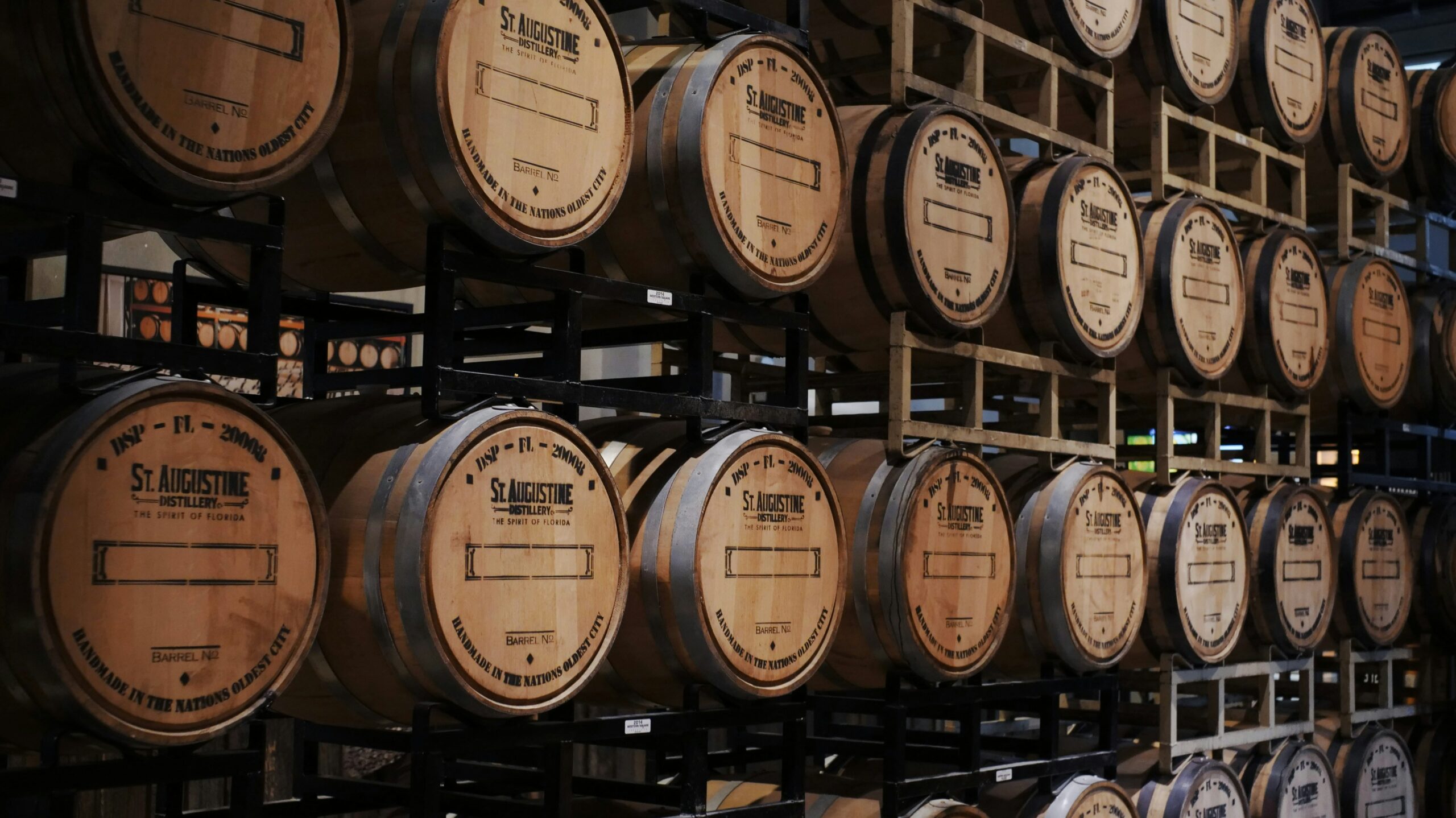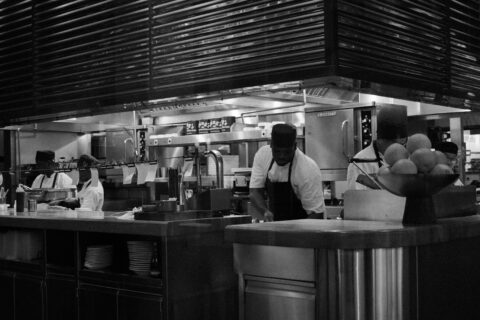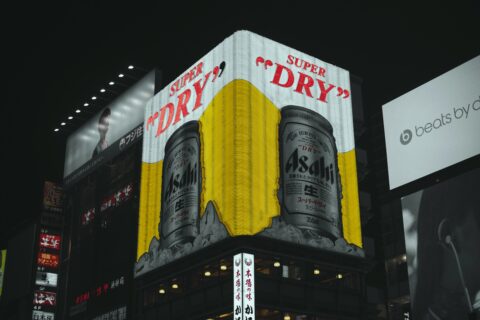Starting a hospitality business in NSW can be quite an endeavour. Among the requirements for most hospitality businesses is obtaining a liquor licence. In New South Wales, there are several licences available that are intended for specific businesses. In this article, we’ll run through the different types of licences and what each licence entails regarding the responsible service of alcohol.
As a licensee you will be required to undergoing Licensee Training, however, if you're operating in a high risk environment then you'll need to obtain the additional Advanced Licensee Training as well. You can learn more about the differences between the two courses from our guide.
Some housekeeping notes before we launch into the list.
-
This is by no means everything there is to know about these licences. This list is designed to give a very general overview and guide you to which licences to look into. For full information, please go to the NSW Government Website.
-
These licences are for NSW businesses. Other states in Australia will have different licences.
Contents
Small Bar Liquor Licence
Thinking about opening a cosy bar rather than a big nightclub? A Small Bar Licence might be exactly what you need. It’s designed for venues that focus on atmosphere, conversation, and good drinks. More specifically, it is for bars that hold a maximum of 120 patrons without gaming machines.
Here’s what a Small Bar Licence lets you do:
-
Serve alcohol for consumption on your licensed premises.
-
Welcome up to 120 patrons at a time (that’s the maximum capacity).
-
Sell house-made cocktails mixed on-site for takeaway, as long as they’re in sealed containers.
-
Sell alcohol for both on-site consumption and takeaway in certain circumstances.
-
Offer entertainment to your patrons.
-
Trade during standard hours: 10:00am to 12:00am, Monday to Sunday. You can even apply for a two-hour extension (until 2:00am) if it’s approved in your development consent.
-
Apply for extended trading hours at an additional cost.
-
Enjoy exemption from trading hours risk loading fees.
-
Keep your venue open outside liquor trading hours. Just remember, you can’t sell or supply alcohol during those times.
What it doesn’t allow:
There are also a few important rules you’ll need to follow:
-
The bar must be open to the public.
-
Free drinking water must always be available to patrons.
-
Food must be offered whenever alcohol is being sold.
-
You must display a sign at the front of the premises showing the name of the venue, the type of licence, and the licensee’s name.
-
If you’re trading past midnight, you’ll need to maintain an incident register.
-
Small Bars can’t be used as venues for adult entertainment of a sexual nature, such as strip clubs or sex industry premises.
Learn more about the Small Bar Liquor Licence.
Hotel Liquor Licence
If you’re planning to run a venue like a pub, hotel, or large bar, a Hotel Liquor Licence might be the right fit. This licence offers some of the broadest permissions in NSW from serving drinks on-site to takeaway alcohol, gaming machines, and hosting functions.
Here’s what a Hotel Licence allows you to do:
-
Sell alcohol to the public for consumption on your premises.
-
Offer takeaway alcohol sales.
-
Operate gaming machines.
-
Sell alcohol at functions held away from your premises (with separate approval).
-
Provide entertainment — though your main business must still be the sale and supply of alcohol to the public.
You’ll usually find this licence used by:
There are also some important requirements under the Liquor Act and Regulations:
-
Your venue must be open to the public, not run as a private club.
-
Free drinking water must be available whenever alcohol is served.
-
Food must be available whenever alcohol is being sold on the premises.
-
A clear sign must be displayed at the front of your venue showing:
-
Under 18s can only be in areas where a minors area authorisation has been approved by the Independent Liquor & Gaming Authority (ILGA).
-
If you regularly trade past midnight, you’ll need to maintain an incident register.
-
Conditions may also be imposed on your licence under liquor laws or by ILGA.
Learn more about the Hotel Liquor Licence.
General Bar Liquor Licence
If you want to run a bar focused on serving drinks on-site without the extra features like takeaway sales or gaming machines, a General Bar Licence could be the one. Essentially, it’s a type of hotel licence that keeps things centred on your patrons enjoying drinks at your venue.
Here’s what it allows you to do:
What it doesn’t allow:
There are also some key requirements under the Liquor Act and Regulations:
-
Your venue must be open to the public and can’t operate as a private club.
-
Free drinking water must be available whenever alcohol is served.
-
Food must be available whenever alcohol is being sold on the premises.
-
A clear sign must be displayed at the front of your venue showing:
-
Under 18s can only be in areas where a minors area authorisation has been approved by the Independent Liquor & Gaming Authority (ILGA).
-
If your venue regularly trades past midnight, you’ll need to keep an incident register.
-
Conditions may also be applied to your licence under liquor laws or by ILGA.
Learn more about the General Bar Liquor Licence.
On Premises Liquor License
If your business mainly focuses on something other than alcohol, like food, entertainment, or accommodation, an On-Premises Liquor Licence might be what you need. This licence lets you serve alcohol as a complement to your main offering.
Here’s what an On-Premises Licence allows:
-
Sell alcohol for consumption on your premises, as long as another product or service (like food, entertainment, or accommodation) is also being provided to customers.
-
Allow under-18s on the premises, provided all rules regarding minors are strictly followed.
What it doesn’t allow:
This type of licence is often suited to businesses such as:
-
Restaurants and cafes
-
Live music, arts, or cultural event venues
-
Cinemas, theatres, and art galleries
-
Accommodation venues, including motels or B&Bs with more than eight guests
-
Catering services
Learn more about the On Premises Liquor Licence.
Club Liquor Licence
If you run a registered club, a Club Liquor Licence lets you serve alcohol to your members and their guests, both on your premises and, in some cases, off-site. This licence is designed specifically for clubs, and each location you operate must be separately licensed.
Here’s what a Club Licence allows:
-
Sell alcohol to members and their guests for consumption on the premises and, where applicable, off the premises.
-
Operate gaming machines, with separate approval.
This licence is commonly used by:
-
RSL clubs
-
Bowling clubs
-
Golf clubs
Learn more about the Club Liquor Licence.
Producer/Wholesaler Liquor Licence
If you make or distribute alcohol, a Producer/Wholesaler Licence lets you sell liquor wholesale to other licence holders.
Producers like breweries and distilleries can also conduct tastings, sell their products by retail at industry shows and farmers’ markets, and sell the product by retail to the public with relevant development consent.
On the other hand, wholesalers don’t qualify as producers and are only permitted to sell liquor wholesale to businesses or individuals with a liquor licence, such as restaurants, bottle shops and pubs.
Here’s what it allows:
-
Liquor producers can sell wholesale to other licence holders, conduct tastings, sell their products at industry shows and farmers’ markets, and even sell directly to the public online or from their licensed premises (with the relevant development consent).
-
Wholesalers who don’t produce liquor can only sell wholesale to businesses or individuals with a liquor licence, such as restaurants, bottle shops, or pubs.
This licence is typically relevant for:
-
Producers/wholesalers with or without a “drinks on premises” authorisation
-
Microbreweries and small distilleries
-
Businesses that sell wholesale only and do not produce liquor
Learn more about the Producer/Wholesaler Liquor Licence.
Packaged Liquor Licence
If your business focuses on selling alcohol for customers to enjoy off-site like a bottle shop or an online liquor store, a Packaged Liquor Licence is what you need. This licence covers all types of retail and wholesale sales of packaged alcohol.
Here’s what it lets you do:
-
Sell alcohol to the public for consumption away from your premises.
-
Sell alcohol to your employees for off-premises consumption.
-
Hold tastings on your premises, either free or for a fee.
-
Sell alcohol both to the public (retail) and to wholesale customers who already hold a liquor licence.
Businesses that commonly use a Packaged Liquor Licence include:
Some businesses aren’t eligible for this licence, including:
-
Service stations
-
Takeaway food shops
-
General stores (including convenience stores, mixed businesses, or milk bars with a retail floor area of 240 square metres or less) that primarily sell groceries. There are exceptions if no other takeaway liquor service exists nearby and granting the licence wouldn’t encourage drink-driving or other alcohol-related harm.
-
Storage units or self-storage facilities
Learn more about the Packaged Liquor Licence.
Microbreweries & Small Distilleries Liquor Licence
If you run a small brewery or distillery and want your customers to enjoy your drinks on-site, you may be eligible for a “drink on-premises” authorisation.
You could qualify if:
-
You already hold (or are applying for) a Producer/Wholesaler Licence or a Microbreweries and Small Distilleries Licence, and
-
You want to sell your own beer, cider, or spirits for full consumption on-site.
Here’s what this authorisation allows:
-
It’s designed for small-scale producers of beer, cider, and spirits.
-
Perfect for microbreweries or small distilleries that want to serve their products in full, not just tastings.
-
You can also sell wine produced elsewhere for consumption on-site, subject to conditions like a 120-person patron limit and ensuring food is available.
-
Application fees are reduced, reflecting the smaller scale of these businesses.
Learn more about the Microbreweries & Small Distilleries Liquor Licence.
Special Event Limited Liquor Licence
If you’re organising an event at a venue that doesn’t already have a liquor licence, a Special Event Limited Liquor Licence lets you sell or supply alcohol, as long as alcohol isn’t the main reason for the event.
Here’s how it works:
-
You can sell or supply alcohol at a venue without a liquor licence, provided the event has another primary purpose.
-
The Independent Liquor & Gaming Authority will consider your application if the event is infrequent or temporary, genuine, and in the public interest under the Liquor Act 2007.
-
If your event is open to the public and expects 2,000 or more attendees, it will be treated as a large-scale commercial event.
Learn more about the Special Event Limited Liquor Licence.
Trade Fair Limited Liquor Licence
If your organisation or business is part of a specific industry and wants to sell or supply alcohol at a trade fair or exhibition in NSW, a Trade Fair Limited Liquor Licence is what you need.
Here’s what it allows:
-
Sell or supply alcohol for takeaway or for consumption on-site at a trade fair or exhibition.
-
The licence also covers large-scale commercial trade fairs if the event is open to the public and expects 2,000 or more attendees.
Learn more about the Trade Fair Limited Liquor Licence.
Single Function Limited Liquor Licence
If you’re a not-for-profit, sports club, or community group and want to sell alcohol at a single event, a Single Function Limited Liquor Licence is the right option.
It’s commonly used for events like:
-
Balls, conventions, or dinners
-
Exhibitions, fairs, fetes, or carnivals
-
Performances or race meetings
-
Sporting events
-
Any other event or activity held for public entertainment or amusement, or to raise funds for a charitable purpose
Learn more about the Single Function Limited Liquor Licence.
Multiple Functions Limited Liquor Licence
If your not-for-profit, sports club, or community group hosts multiple events throughout the year, a Multiple Functions Limited Liquor Licence lets you sell alcohol at up to 52 events annually in NSW.
It’s commonly used for events such as:
-
Balls, conventions, or dinners
-
Exhibitions, fairs, fetes, or carnivals
-
Performances or race meetings
-
Sporting events
-
Any other event or activity held for public entertainment or amusement, or to raise funds for a charitable purpose
Learn more about the Multiple Functions Limited Liquor Licence.
Pop-Up Liquor Licence
If you’re an established business, entrepreneur, or creative looking to run a temporary bar or event, a Pop-Up Liquor Licence is a great option in NSW.
Here’s what it allows:
-
Sell or supply liquor for consumption at a temporary pop-up bar or event.
-
Conduct tastings and sell takeaway liquor at off-site pop-up promotions if you’re already a NSW licensed producer.
-
Operate your pop-up bar for up to 12 weeks, which doesn’t have to be consecutive days within that period.
Pop-up licences are ideal for smaller-scale events that have a positive social or economic impact, such as:
-
Activating or revitalising local places and spaces
-
Encouraging diverse and vibrant social, cultural, or business activities in the night-time economy
-
Promoting outdoor dining to create lively local communities and additional business opportunities
Learn more about the Pop-Up Liquor Licence.
Surf Clubs Liquor Licences
Surf clubs in NSW can operate under two types of liquor licences: a Limited Licence (Multi-Function) and an On-Premises Licence.
Multi-Function Limited Licence
This allows surf clubs to sell alcohol during their approved club functions, as well as during their social functions.
-
Surf clubs can sell alcohol at club functions that have been approved by Liquor & Gaming NSW.
-
Up to 52 club functions can be approved for each 12-month period.
-
Alcohol can be sold for consumption on the surf club’s premises during a function for a maximum period of 4 hours.
-
Trading hours are determined by L&GNSW for each approved function.
On-premises Licence
Under this licence, surf clubs can hire out their premises and sell alcohol at those events. An on-premises licence can also be used to sell liquor at the club’s own functions and social events.
We recommend heading to the NSW Government Page to check the requirements for both of these licences.
All licences come with their own specific requirements, which may be looked up through the Liquor & Gaming NSW website. There may also be requirements for the servers. Correctly identifying the right licence appropriate for your business ensures a smooth and above-board conduct of commerce - be sure to check if your chosen licence is the correct one for you.
To know more about licences and being a licensee, be sure to check out our Virtual Licensee Training or Online Licensee Training.






